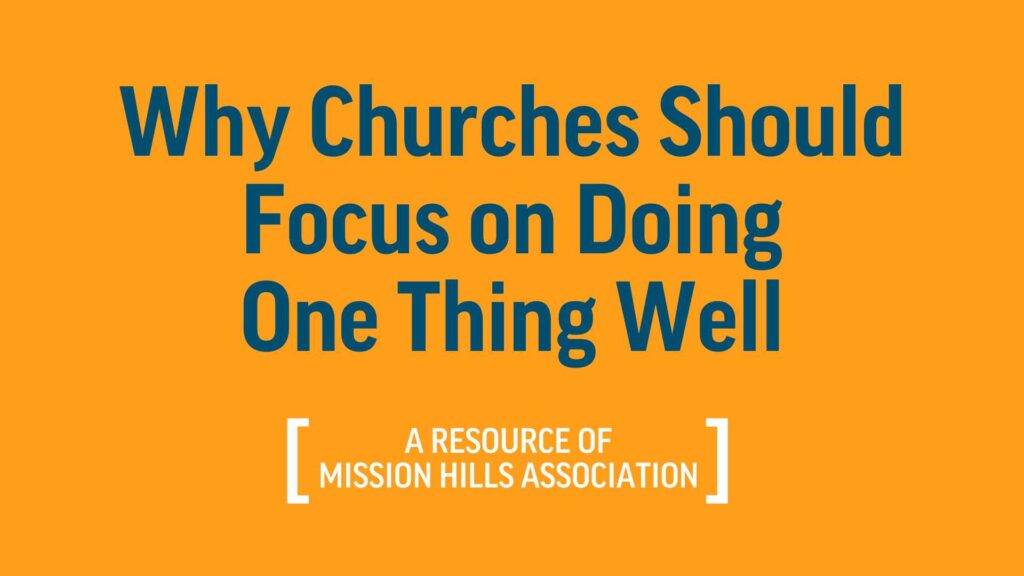
The demands of pastoral ministry can be overwhelming, leading many to burnout or question their calling. For those committed to the long haul, developing healthy habits is not just beneficial—it’s essential. Mike Romberger, Executive Pastor at Crossroads Community Church, explains, “There isn’t a one-size-fits-all approach to healthy habits.” Instead, pastors must tailor their strategies to their unique needs, strengths, and challenges.
Drawing from decades of experience in ministry, Romberger shares insights and practices to help pastors thrive.
1. Prioritize Your Family
Pastoral ministry often blurs the lines between work and personal life, but Romberger stresses the importance of prioritizing family.
- Listen to Your Spouse: “My wife, Jane, has redirected me many times,” Romberger shares. A spouse’s perspective can ground you in reality, offering encouragement when criticism looms or providing a much-needed nudge toward action.
- Balance work and home life: While achieving perfect balance may be unrealistic, Romberger advises turning off work when you get home. Make a conscious effort to be present with your family and create clear boundaries between ministry and personal time. “Remember to date your wife,” Romberger says.
- Take all your vacation time: Romberger emphasizes the importance of using all your allotted vacation days and leaving town during these breaks. This time away allows for rest, rejuvenation, and maintaining a healthy perspective on life and ministry.
2. Embrace Authenticity
Pretending to be someone you’re not can be exhausting and counterproductive. Romberger recalls his experience leading a large camp: “I was trying to be a CEO when what they really needed was a pastor. Once I embraced who I was, I led more effectively.”
- Be Yourself: Authenticity not only reduces stress but also fosters trust and respect among your congregation.
- Practice Self-Reflection: Regularly evaluate your motivations and actions to ensure they align with your values and calling.
3. Build Strong Support Networks
Ministry is not a solo journey. It is critical to cultivate relationships with others who can guide, challenge, and support you.
- Submit to Your Elders: “Your elders are God’s leaders in your life,” Romberger notes. Investing in relationships with your church’s elders can provide wisdom and accountability.
- Learn from Seasoned Pastors: Seek out retired or experienced pastors for mentorship. “I have a few mentors who know how to ‘poke and prod,’ and they’ve kept me out of trouble more than once,” Romberger adds.
- Foster Peer Relationships: Develop camaraderie with other pastors, even outside your local area. These friendships offer a safe space to share struggles and celebrate victories.
4. Master Time Management
Effective time management helps pastors maintain focus and energy for what matters most.
- Say No: “No is a complete sentence,” Romberger says. Learn to decline requests that don’t align with your priorities.
- Take Retreats: Schedule regular, non-vacation retreats for prayer, reflection, and planning. Romberger suggests a four-day retreat at least annually. “It’s amazing what God can do when you dedicate time to seeking His direction.”
- Stay Grounded: Avoid distractions like seeking fame or constantly looking for the next opportunity. “Put your head down and pastor your church. When it’s time to move on, God will uproot you.”
5. Handle Criticism Wisely
Dealing with criticism is an inevitable part of pastoral leadership. Romberger offers practical advice for handling criticism in a healthy manner.
- Delay your response: When criticized, wait before responding. This pause allows you to process the feedback and respond thoughtfully rather than reactively.
- Keep responses brief: When you do respond to criticism, Romberger suggests writing only a one-paragraph response. This approach helps maintain clarity and prevents the escalation of conflicts. Responding also ensures the person on the other end of the communication feels heard.
- Trust in God’s defense: Remember that “God will defend you,” as Romberger notes. Focus on maintaining your integrity and allow your character and work to speak for themselves over time.
6. Pursue Continuous Growth
Staying inspired and passionate requires ongoing learning.
- Attend Conferences: Events like the Drive Conference can provide fresh perspectives and renewed energy. Romberger recommends attending not to critique but to learn.
- Invest in Mentorship: Receiving mentorship from experienced pastors and mentoring younger pastors can contribute to your growth and fulfillment in ministry. Romberger encourages pouring into younger pastors, even if not in an official mentorship capacity.
Final Thought: Stay Humble + Godly
“Don’t do stupid stuff,” Romberger says, distilling years of wisdom into a simple yet powerful statement. By staying humble, rooted in your faith, and aligned with God’s guidance, you can navigate the challenges of ministry with resilience and grace.
As a pastor, your role is demanding but deeply rewarding. By adopting these habits and leaning on God’s strength, you can remain steadfast in your calling and serve your congregation and community with passion for years to come.




